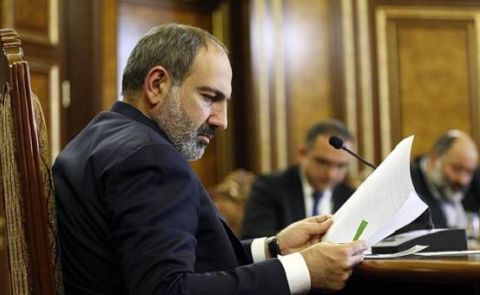
IMF and EBRD revise their economic forecast for Georgia

On 12 November, the European Bank for Reconstruction and Development (EBRD) released its 2020-2021 transition report where it forecasted 3.5% growth for Georgia in 2021. However, the Bank projected a 5% contraction in 2020 due to the Covid-19 pandemic.
The EBRD noted that the impact of the external pandemic shock was wide-ranging, hitting export of goods, tourism and remittances, all very important pillars of the Georgian economy. Strict virus containment measures, imposed in March 2020, hit domestic demand and many small service providers. The institution added that an increase in government expenditures combined with weaker economic activity led to a sharp rise in the budget deficit, and the loss of tourism revenues has resulted in a widening of the current account deficit.
In regard to the key economic priorities for Georgia in 2021, the EBRD emphasised that that the country’s authorities should strengthen the resilience of the economy through diversification. This recommendation means that they should support the export of information technologies services and benefit from the expected post-Covid-19 shifts in global supply chains. It added that the governance standards need to remain high on the reform agenda and that the human capital development through investments in education would help improve the overall productivity of the economy.
The International Monetary Fund (IMF), on the other hand, forecasted a 4.3% growth in 2021. The main IMF predictions for Georgia were the following: 1) the Covid-19 shock is expected to cause a contraction of 5% in GDP in 2020; 2) by the end of 2020 inflation was projected at 3.5% as high food prices during the lockdown have been fully offset by the decline in inflation after the reopening; 3) the current account deficit is expected to widen to 9.7% of GDP in 2020, from 5.4% in 2019; 4) the fiscal deficit is expected to widen on the back of lower tax revenues and fiscal support measures provided to support those impacted by the shock; and 5) the shock to tourism is expected to be protracted with tourism receipts assumed to recover to 2019 levels only by 2024.
Both the IMF and the EBRD noted that the National Bank of Georgia (NBG) had taken decisive actions to mitigate the impact of the pandemic on the real economy and the financial sector. Banks in Georgia have been 'generally resilient' during the pandemic, helped by their sound initial capital and liquidity positions and the strong response by the NBG in dealing with the shock.
It was also reported, in connection with the two economic forecasts, that the US Fiscal Year 2021 State and Foreign Operations Funding bill no longer included preconditions for allocating 132 million USD financial aid for Georgia. The early draft of the bill stated that 15% of the funds could have been withheld until the US Secretary of State determined and reported that the Georgian government was taking effective steps to strengthen democratic institutions, combat corruption and ensure that the rule of law in the private sector is consistent with international, recognised standards.
See Also


Pashinyan Commemorates First Republic Day, Highlights Progress in Sovereignty and Peace Efforts

Israeli Ambassador to Armenia Acknowledges Challenges but Optimistic About Future Armenian-Israeli Cooperation

EU Plans Closer Cooperation with Azerbaijan, Georgia, Türkiye, and Other Black Sea States

Azerbaijan, Türkiye, and Pakistan Highlight Growing Strategic Cooperation at Lachin Summit

